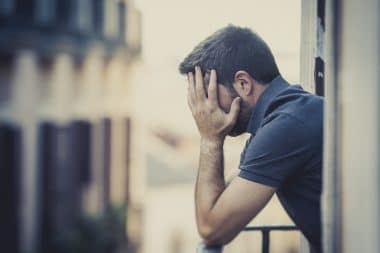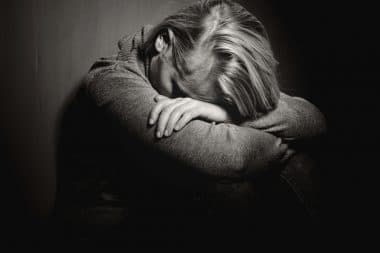Nobody knows for sure what happens inside someone’s mind. We’ve seen far too many actors or music stars end up in suicide, even though they were the heart of the party wherever they went. Many people fighting with depression manage to be highly functional, acting as if nothing is wrong with them whatsoever. Many of them succeed in hiding their emotions from their life partners, and it’s a shock for everyone around them when they commit suicide.
When it comes to depression, or any other mental health condition, taking a step back to see the bigger picture is helpful. We also need to let go of the misconceptions. Not only may depression look different from one person to the next, but in dealing with it we should also consider the specifics of the depressed person.
Here are some of the things you need to remember when someone in your life deals with both addiction and depression.
1. Depression and Addiction are a Severe Combination
The risk of people with addiction to also be dealing with co-occurring mental conditions is high. When a person deals with both addiction and depression, the symptoms of either condition amplify, affecting one’s life deeply. People with depression present a 10% lifetime suicide risk, whereas people with addiction have a similar risk. It makes perfect sense that when you combine the two, the risk becomes 1 in 4.
Unfortunately, depression becomes a relapse trigger for people with addiction. Many professionals revealed that depression may be the most significant predictor of alcohol relapse. Drugs and alcohol affect the efficiency of the treatment, and it’s something to consider when selecting a rehab.
All in all, depression and addiction pose an important risk for one’s recovery when they’re combined. People looking for professional help should check the treatment centers that offer dual-diagnosis. The chance for recovery is high when both are treated.
2. Find the Treatment that Does Help
When you take a look at the success rate of conventional rehab programs, you may lose faith in treatment. Outdated and unable to prevent relapse, the conventional treatment rehabs have been failing their patients for years.
However, some professionals created and developed new and more effective methods for addressing both addiction and depression. The Holistic Sanctuary is the perfect example of treatment center where an integrative and non-traditional approach is being used. Addiction is seen as a symptom of imbalances in one’s mind, body and soul, so therapies should aim the healing of mind, body and soul together. More importantly, only 100% natural substances and methods are used at this treatment facility. The rate of success is impressive, and the testimonials from former patients are great proof.
People want results overnight, but that cannot happen. “We need to break down the addiction, and that takes some time. Add depression into the mix, and you get to understand that treatment is a lot more complex than a simple detox of the body. However, we’re dedicated and stay true to our beliefs, which is help our patients find the way for complete healing” says Johnny Tabaie, the founder of the Holistic Sanctuary.
3. Inpatient Treatment May Always Be Needed
The path of healing is long, and for some, it may never end. With medical professionals still defining addiction and depression as chronic diseases, it’s understandable why we talk about lifetime treatment, and not healing.
Ideally, patients would go to rehab for 30 days, take antidepressants and be healed when they leave the treatment center. However, for people with both addiction and depression it may never be that way.
According to statistics, after an initial treatment, only 1 out of 3 people with depression will go into remission, whereas 1 out of 3 people noticed improvement without remission. The other one out of three didn’t present any improvements after treatment. Traditional professionals highlight that only when medicine and therapy are used together, progress will show. As for people with depression who don’t get any treatment, the risk of relapse is almost 100% within two years.
When it comes to addiction treatment, it should be delivered for the long run to ensure success.
For people choosing the non-conventional treatment, the situation may be different depending on the center they choose. Addiction and depressions are signaling that one’s mind, body, and soul experience deep perturbations. Therefore, the therapies should address those imbalances. “We’re not addressing the symptoms, but the whole person. We take care of the mind, body and soul, while using only natural methods and substances. It’s a long process, but our goal is to heal the patient” reminds us Johnny Tabaie.
4. Conventional Treatment Isn’t The Only Choice
For years, people with addiction and depression have been turning to traditional rehab centers exclusively. Recently, more and more professionals in the field have developed alternative protocols that create new perspectives on the treatment of both addiction and mental health conditions.
Many people working in health care realized that a comprehensive approach to addiction and depression will open the way to better treatment.
At the Holistic Sanctuary, professionals help patient search deep into their soul for discovering the roots of the addiction. Afterwards, they teach patients how to cope healthily with life’s challenges and open themselves to positive thoughts on their path to healing. Yoga, meditation, sacred plant medicine, and one-on-one counseling sessions are used for treatment, increasing the chance for complete healing. “It makes no sense to address addiction or depression with prescribed medication. It’s better that we seek the natural substances and natural methods, as they pose no risk to develop addiction. Sacred plant medicine, for instance, helps people stay sober for a long time, without making them become addicted to it”, notes Mark, an experienced alternative medicine practitioner at the Holistic Sanctuary.
5. People With Depression and Addiction Aren’t Weak
Some people see patients with addiction and depression as weak people, who are unable to make the right decisions in life. However, it’s a deep trauma or constant emotional abuse that causes depression, according to some professionals. Modern medicine professionals, on the other hand, consider depression to be a brain disorder. Genetic, environmental, psychological, and biological factors come into play, causing depression.
Regardless of your standpoint, depression doesn’t happen because someone is weak. It’s the same thing with addiction. The sooner we understand it, the easier it is going to be for people with depression and addiction to get the help they need.








Reply